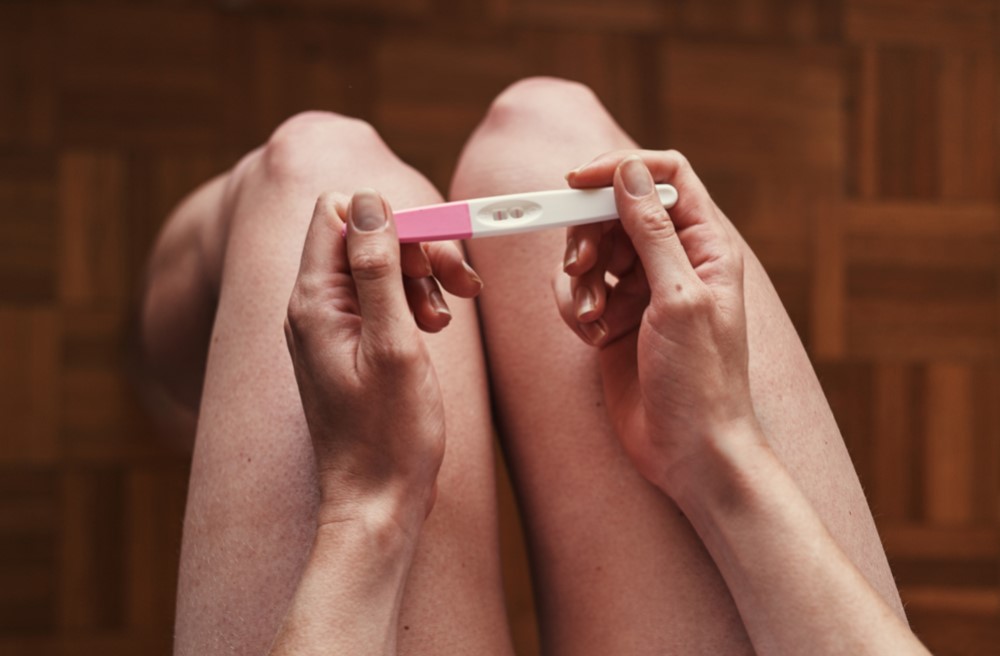Discovering you’re pregnant can be an exciting, scary, emotional, and sometimes overwhelming time—especially if it’s an unplanned pregnancy. The changes your body is undergoing is challenging and understanding what to expect in those early weeks can help ease some of the uncertainty.
If you’re an expecting mother or a first-time parent, this guide is for you. We’ll outline common early pregnancy symptoms, explain why they happen, and share tips on how to care for yourself during this important stage.
Take a deep breath—you’re not alone in this.
Early Pregnancy Symptoms
Pregnancy brings about significant changes in your body, and you’ll likely notice some of them quite early. Every pregnancy is unique, but here are some of the most common symptoms you may experience during the first trimester:
1. Missed Period
A missed period is often one of the first signs of pregnancy. This happens because your body begins producing human chorionic gonadotropin (hCG), a hormone that helps support your pregnancy and stops your normal menstrual cycle.
2. Fatigue
Feeling unusually tired? It’s completely normal. Higher levels of the hormone progesterone, combined with changes in your body’s metabolic needs, can leave you feeling more exhausted than usual.
3. Nausea and Morning Sickness
Nausea, with or without vomiting (often called morning sickness), typically begins around week 6 of pregnancy. Despite the name, it can happen at any time of the day. This symptom is linked to hormonal changes and should ease by the second trimester for most women.
4. Tender Breasts
Your breasts may feel sore or swollen due to hormonal changes as your body prepares for breastfeeding. A comfortable, supportive bra can make a world of difference.
5. Frequent Urination
You might notice more trips to the bathroom. The increase in hormones, combined with your growing uterus pressing against your bladder, can cause this to start early in pregnancy.
6. Food Cravings or Aversions
You may suddenly crave certain foods or find that some of your favorite meals have completely lost their appeal. These changes are common and largely influenced by pregnancy hormones.
7. Mood Swings
It’s not uncommon to feel more emotional or experience mood swings in early pregnancy. Hormonal shifts, fatigue, and the life-changing nature of pregnancy can all play a role.
8. Mild Cramping or Spotting
Some women experience light cramping or spotting as the fertilized egg attaches to the lining of the uterus, a process known as implantation. If the spotting becomes heavy or the cramping is severe, consult your healthcare provider.
9. Constipation
Hormonal changes can slow down your digestive system, leading to constipation. Drinking plenty of water, eating fibre-rich foods, and gentle exercise can help.
Taking Care of Yourself in Early Pregnancy
Caring for yourself is one of the most important things you can do during early pregnancy. Here are some essential tips for self-care during the first trimester and beyond.
1. Schedule Your First Prenatal Appointment
Once you know you’re pregnant, schedule a visit with your healthcare provider. Early prenatal care is essential to monitor your health.
2. Eat a Balanced Diet
Your body needs extra nutrients during this time. Focus on eating a variety of fruits, vegetables, whole grains, lean protein, and healthy fats. Prenatal vitamins, especially folic acid, are also crucial at this stage.
3. Stay Hydrated
Drink plenty of water throughout the day to prevent dehydration, which can sometimes worsen nausea and fatigue.
4. Rest and Listen to Your Body
Your energy levels may fluctuate during early pregnancy. Listen to your body—rest when you’re tired, and don’t hesitate to ask for help when you need it.
5. Stay Active (When Possible)
Gentle exercise, like walking can boost your energy, and improve your mood. However, always consult your healthcare provider before starting or continuing an exercise routine during pregnancy.
6. Avoid Harmful Substances
Steer clear of smoking, alcohol, and recreational drugs. These substances can harm fetal development. Talk to your provider if you need resources or support to quit.
7. Manage Stress
Pregnancy can bring a mix of emotions, from joy to worry. Take time to relax and unwind, whether through journaling, spending time with loved ones, or simply enjoying a quiet moment for yourself.
When to Contact Your Healthcare Provider
While most early pregnancy symptoms are normal, it’s important to know when to seek medical help. Contact your provider if you experience:
- Severe cramping or abdominal pain
- Heavy bleeding or clotting
- Intense dizziness or fainting
- Persistent, severe nausea and vomiting
- Signs of a urinary tract infection (e.g., burning sensation while urinating)
Your provider is there to guide you every step of the way. Don’t hesitate to reach out if you have concerns.
Moving Forward Together
Early pregnancy is a miraculous yet challenging phase, full of changes and emotions. This is your unique experience, and it’s okay to have questions, concerns, and need support along the way.
You’ve got this, and you’re not alone. Lean on your healthcare providers, loved ones, and trusted resources to stay informed and supported.
If you want to continue learning more or need extra support, don’t hesitate to book an appointment at Atwell Centre or another pregnancy support service in your area.
Take care and nurture yourself—you’re already doing an amazing job.
The information provided on the Atwell Centre blog is intended solely for educational purposes and is not a substitute for professional medical advice, diagnosis, or treatment. We strongly recommend that you consult a physician or other qualified healthcare provider for the most up-to-date information and personal medical advice.
If you are experiencing an unplanned pregnancy, need STI testing, or would like post-abortion support, please book an appointment at Atwell Centre. Your health and well-being are our top priorities.

